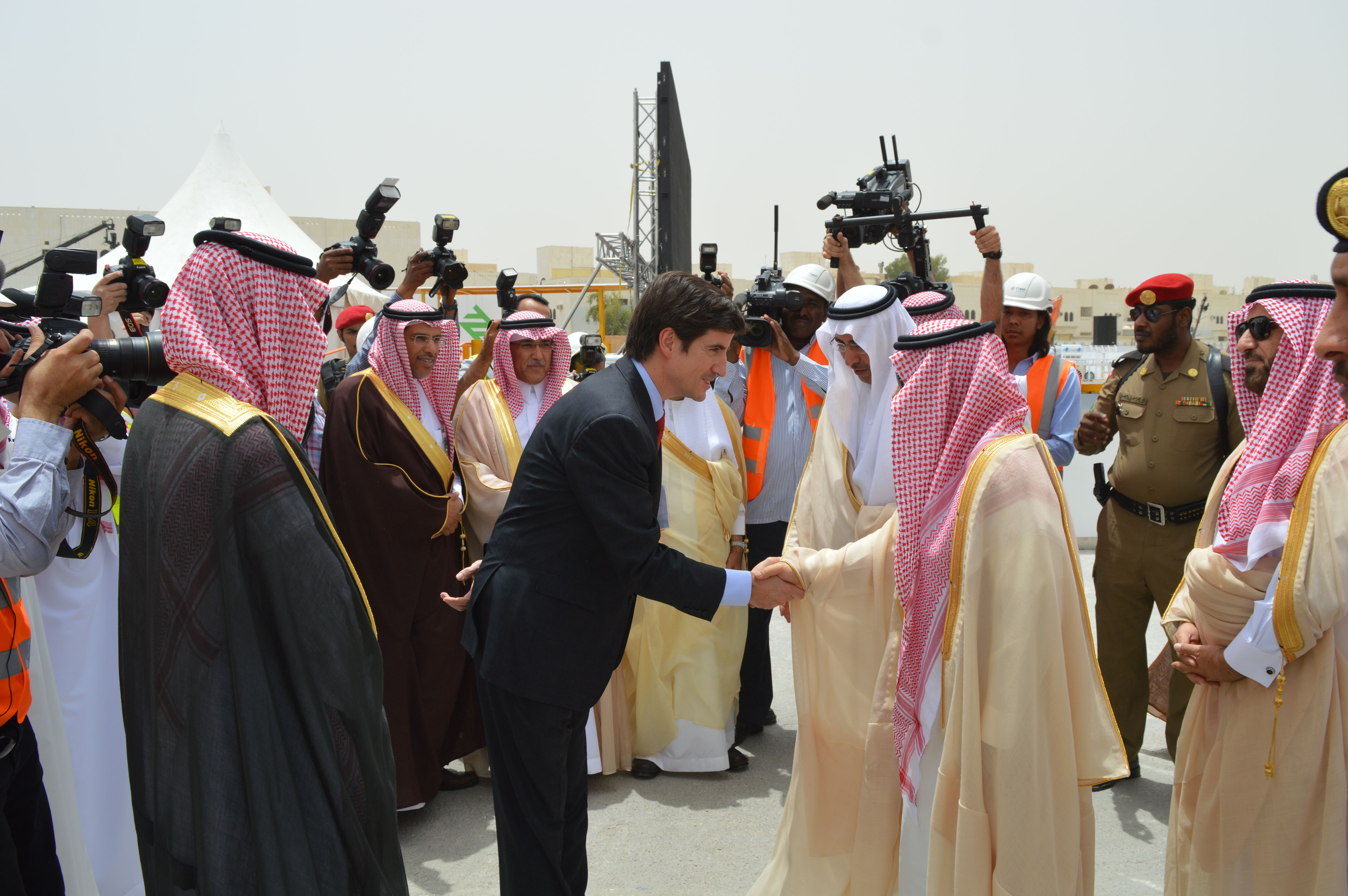FCC begins construction of first Riyadh metro tunnel
The new metro will increase quality of life in the city, where there are over 7 million daily commutes.

FCC has started boring the first tunnel of the Riyadh metro. This forms part of the megaproject that was awarded to the FAST Consortium last year in which Citizen Services Group is the leading company in charge of the design and construction of Package 3, which covers lines 4 (orange), 5 (yellow) and 6 (purple).
Prince Faisal bin Bandar, governor of Riyadh, was in charge of activating the first of the two tunnel boring machines that will be used to build the green line of the Riyadh metro which will have 11 stations and 2 connections with the blue and red lines.
In order to build the three lines awarded, the Consortium led by FCC will use three TBMs (tunnel boring machines) with a diameter of almost 19 metres and which can excavate full tunnel sections. The Dhafrah (victory in Arabic) tunnel boring machine has already begun excavation of the first 12.9 km tunnel between the Riyadh Air Base and King Abdul Aziz Historical Centre, and is expected to cover an average of between 75 and 100 metres per week. In total, 7 tunnel boring machines will be used to finish the metro in Riyadh, the world’s biggest underground system in construction, with 85 stations covering 175 kilometres.
Out of the total budget of 16.3 billion euros, around 6 billion are intended for the works on lines 4, 5 and 6. There are 25 stations planned for these three lines in Package 3, awarded to FCC, for which a total of 65 km of metro tracks, 24 km of viaducts, 28 km of underground tracks and 13 km of surface tracks are required. In addition, 69 automatic and driverless trains will be created to provide service to the three lines.
The first stage of the works began at the beginning of April with the excavation of the “4 G1” station at the Riyadh King Khaled international airport, one of the stations on line 4 which will link the financial city to the capital’s airdrome.
It is estimated that the works will be complete in 2018 and FAST (along with Samsung, Alstom, Strukton, Freyssinet Saudi Arabia, Typsa, Atkins and Setec) will use around 15,000 workers of over 33 nationalities. FCC faces the challenge of designing and constructing a first-class metro for the capital of the Kingdom of Saudi Arabia, where there are currently 5.7 million inhabitants. 2% of the population use public transport and there are around 7.4 million daily commutes. It is estimated that by 2030 the population will have grown to 8.3 million, which is why the Riyadh metro will increase the quality of life of its citizens, asides from boosting the local economy.

Jaime Freyre, director del consorcio FAST y el príncipe Faisal bin Bandar, gobernador de Riad








